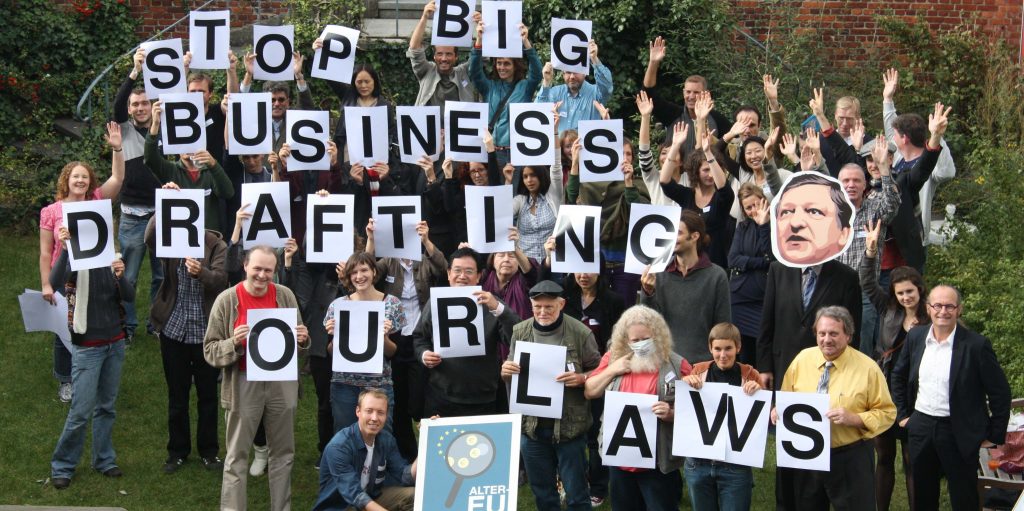Industry experts and corporate lobbyists have effectively captured key areas of policy advice within the European Commission, according to new research carried out by the Alliance for Lobbying Transparency and Ethics Regulation (ALTER-EU), launched today at a joint event with the Austrian Trade Union Federation (ÖGB) and the Austrian Federal Chamber of Labour [1].
The study finds that two thirds of all of DG Enterprise’s non-governmental advisory groups are dominated by big business interests [2] with some 482 corporate advisors influencing key areas of policy, such as international trade, consumer protection, food and aspects of environmental protection.
In contrast, the interests of small and medium-sized enterprises have little opportunity to influence policy decisions through advisory groups, accounting for just 5% of the total non-governmental representatives. Representatives from non-governmental organisations (NGOs) account for just 8%, and unions for 1%.
The Commission’s advisory groups provide specialist advice on policy issues and their work can form the backbone of new legislation. The European Parliament has previously criticised the Commission for engaging more with big business than with any other social group through these advisory groups.
ALTER-EU argues that allowing big companies to dominate these groups creates a risk that the interests of these companies will be given greater priority than the broader public interest.
One of the report authors, Yiorgos Vassalos from ALTER-EU, said: “DG Enterprise seems to have become the champion of big business in the Commission. Their dominance in expert groups is providing business with privileged access to influence the policy agenda, while other interests do not have a similar voice. As a result there is a very real risk that industry lobbyists may capture whole areas of policy making at the European level, to the detriment of wider society.”
Oliver Roepke from the Austrian Trade Union Federation said: “DG Enterprise seems to have forgotten that employees and workers are at the heart of the European economy. Their expertise and experience should also lie at the heart of policy making. Far too often we see DG Enterprise working with transnational corporations which have no interest in protecting jobs and decent living standards in Europe. This one-sided policy-making must be reformed.”
ALTER-EU is calling on the Commission to make major changes in the composition of its advisory groups to ensure that the public interest is properly served. It also calls on the Commission to implement the European Parliament’s demands and introduce safeguards against corporate capture of expert groups.
Notes:
[1] Who’s driving the agenda at DG Enterprise and Industry? ALTER-EU, July 2012. [2] The report authors defined that a group is dominated by a certain interest if that interest has more than half of the non-government seats.The Alliance for Lobbying Transparency and Ethics Regulation (ALTER-EU) is a coalition of over 160 civil society groups, trade unions, academics and public affairs firms concerned with the increasing influence exerted by corporate lobbyists on the political agenda in Europe, the resulting loss of democracy in EU decision-making and the postponement, weakening, or blockage even, of urgently needed progress on social, environmental and consumer-protection reforms. See www.alter-eu.org







